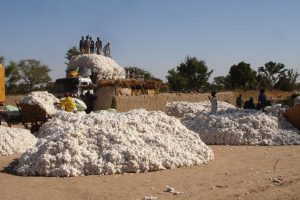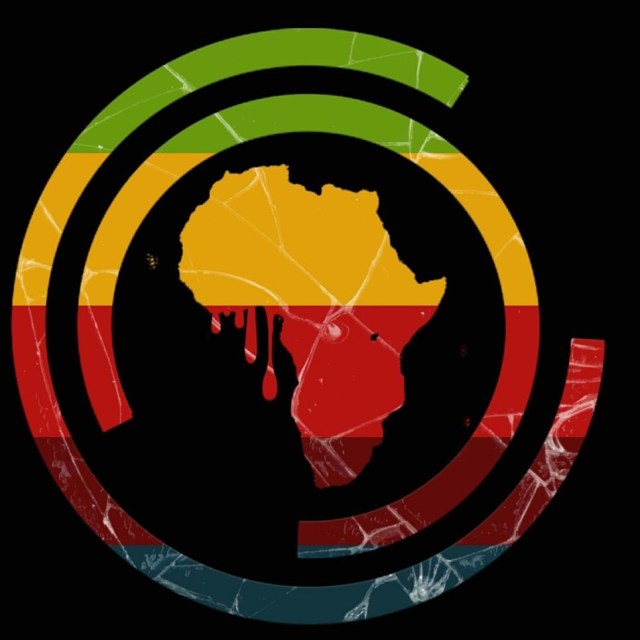Africa is the Future Today !
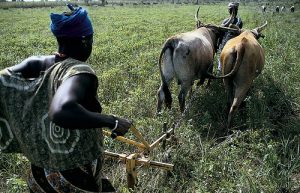
Nouhoun Tigana, a farmer in rural central Mali, doesn’t know for sure what the weather will be tomorrow – other than that it’s likely to be blisteringly hot again.
“The heat is so bad now that we can’t work between noon and 3 p.m.,” he said, waving a skinny pigeon away from the chicken coop he is guarding.
Oddly, however, Tigana now has some idea of what conditions might look like 30 years from now in his village, near the southern fringes of Africa‘s Sahel zone.
That’s because, with 30 other farmers, he last year climbed into a Jeep and headed off for a bit of “time travel”: A visit to the Mopti region, to the northeast, that today has the kind of conditions experts believe Kolondialan can expect in decades to come as climate change takes hold.
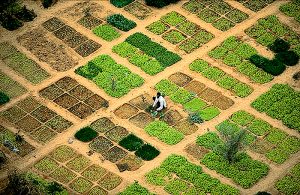
The initiative is part of the Building Resilience to Climate Extremes and Disasters (BRACED) programme, supported by Britain‘s Department for International Development.
Kolondialan, like many villages in central Mali, is grappling with recurring periods of drought which destroy crops and make it increasingly difficult to work in soaring temperatures often reaching 45 to 50 degrees Celsius (113 to 122 degrees Farenheit).
The farmers are working on ways to adapt to the changing conditions, such as experimenting with new crops and trying to find additional sources of income beyond crop farming, to build their resilience to worsening harvest losses.
Over the past year, with the help of climate experts and an online weather prediction tool, Tigana and other local farmers have helped identify villages further north – such as Bankass and Koro – that are experiencing the kind of climate conditions Kolondialan could face in 30 years’ time, mainly higher temperatures and less rain.
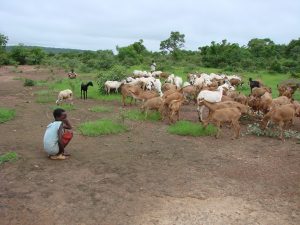
After the visit, each of the project village has received a grant of 1 million CFA francs (about $1,700), which it can spend on any kind of adaptation effort its community groups decide on.
“We hope that by seeing how farmers have adapted to a hotter climate, for example through smarter farming techniques and new ways of sharing weather information, visitors will implement these innovations at home,” Traoré said.
For example, in the village of Sibougou – also in central Mali – the community has chosen to build stoves made of mud and straw, which burn less wood, as well as insulated baskets, which conserve heat to cook food even when there is no sun.
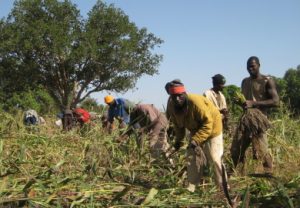
Mariam Touré, a farmer who has been using the improved stoves and baskets since the beginning of the year, says they have allowed her to start her own bakery business while still reducing her wood consumption by about 25 percent.
“God is angry at us for using so much wood so he sent us this drought,” she said, wrapping up loaves of bread in yellowing paper. “Hopefully we can change his mind by using less wood.”
John Riley, project director at International Relief and Development (IRD), a charity managing the BRACED project in Mali, said the “farms of the future” approach aims to “help communities grow more independent in the long term, rather than rely on external assistance”.
But a recent rise in jihadist attacks in Mali’s north – and increasingly in the country’s centre – have hampered progress. A ban on motorcycle travel, aimed at reducing the attacks, prevents farmers and field agents from travelling to the villages they’re meant to visit or assist, Riley said.
